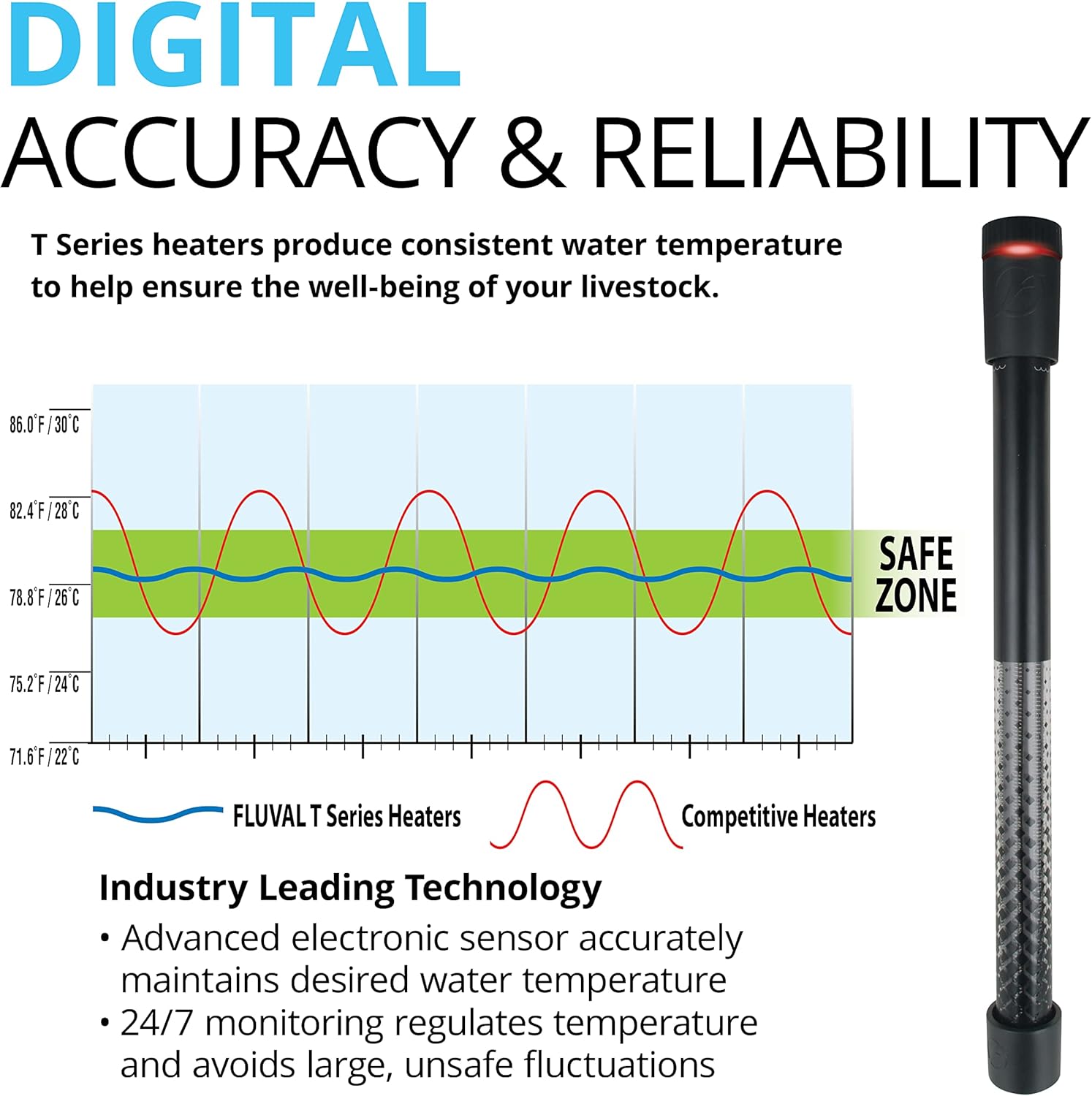Betta Fish Water Temperature
In the wild, bettas come from the shallow rice paddies, canals, and floodplains of Southeast Asia, where water stays warm year-round and rarely fluctuates drastically. By recreating this tropical environment in your home aquarium, you’ll protect your fish’s immune system, support natural behaviors, and showcase their vibrant colors.
Why Temperature Matters So Much
Water temperature directly influences your betta’s metabolism, digestion, and immune system. As cold-blooded animals, bettas depend entirely on their environment to regulate body functions. Too cool, and their metabolism slows, leaving them lethargic and more prone to infections like fin rot. Too warm, and their metabolism speeds up to unhealthy levels, causing stress and shortening lifespan.
A stable, correct temperature means:
- Steady energy levels and swimming activity
- Stronger resistance to disease
- Brighter colors and flaring displays
- A healthier appetite and digestion
Expert insight: According to the American Veterinary Medical Association, stable tropical water conditions are a baseline requirement for betta welfare.
The Ideal Betta Fish Water Temperature
Most aquarists agree that the optimal range is 76°F–80°F (24°C–27°C). This range supports healthy metabolism while minimizing stress. Within it, different betta types may show subtle preferences:
- Plakat bettas (closer to wild types): thrive around 77–78°F (25°C).
- Halfmoon & Crowntail bettas (large fins): benefit from the upper range (79–80°F / 26–27°C), as warmer water reduces fin-related stress.
- Double tail bettas: do best at a stable midpoint (around 79°F / 26°C).
Note: Avoid long periods outside this range. Consistency is just as important as the number itself.
Click For My Favorite Tank Heater
How to Know If Your Betta Is Comfortable
Healthy, comfortable bettas are active, curious, and eating well. Signs of trouble include:
- Too cold: sluggish swimming, loss of appetite, clamped fins, resting at the bottom.
- Too warm: frantic darting, rapid gill movement, hanging at the surface as oxygen levels drop.
Observing these behaviors gives you early warnings before illness develops.
Best Practices for Maintaining the Right Temperature
- Use a reliable heater
- Choose an aquarium heater with an adjustable thermostat and safety shutoff.
- For tanks under 5 gallons, consider a low-wattage preset heater designed for small aquariums.
- Monitor with a thermometer
- Place a digital or stick-on thermometer in your tank and check it daily.
- Test occasionally against a second thermometer for accuracy.
- Control the environment
- Keep your aquarium away from drafts, windows, and direct sunlight.
- Room temperature fluctuations can quickly affect small tanks.
- Match water during changes
- Always temperature-match new water to the existing tank before adding it.
- Use a bucket and separate thermometer to confirm.
Handling Temperature Problems
- If water gets too cold: Wrap the tank in towels, add an extra heater, or raise the room temperature. Never use boiling water or sudden changes.
- If water overheats: Float sealed ice packs, increase room ventilation, or use a small aquarium fan. Cool the water gradually—shocks can be fatal.
Seasonal Tips
- Winter: Insulate your tank with foam board backing or a fitted cover. Check heater performance more often.
- Summer: Prevent overheating by running fans, using AC, and reducing exposure to direct sunlight.
Myths About Betta Water Temperature
- “Bettas can live in room-temperature water.”
- False. In most households, room temp falls below 72°F—far too cold for long-term health.
- “Small tanks don’t need heaters.”
- False. Small tanks change temperature even faster than large ones. Heaters are vital no matter the size.
Frequently Asked Questions
What happens if my betta’s water is too cold?
Cold slows metabolism, causing lethargy and weakening the immune system. Over time, this can invite disease.
Can bettas tolerate higher than 80°F?
Briefly, yes—but above 82°F (28°C) stress increases and lifespan shortens. Long-term exposure is not recommended.
How do I know my heater works properly?
Cross-check its reading with a separate thermometer. If the numbers don’t match, replace the faulty device immediately.
Final Thoughts
Stable, warm water is the cornerstone of betta care. By keeping your aquarium between 76°F and 80°F, investing in a reliable heater, and monitoring daily, you’ll provide an environment where your betta can flourish. A healthy betta isn’t just beautiful—it’s energetic, interactive, and a joy to keep for years to come.
